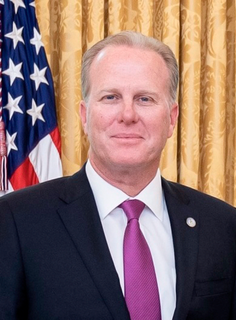A Quote by Richard Rodriguez
What has happened in the last generation is that Tijuana has become a new Third World capital - much to the chagrin of Mexico City, which is more and more aware of how little it controls Tijuana politically and culturally. In addition to whorehouses and discos, Tijuana now has Korean factories and Japanese industrialists and Central American refugees, and a new Mexican bourgeoisie that takes its lessons from cable television.
Quote Topics
Addition
American
Aware
Become
Bourgeoisie
Cable
Capital
Central
Central America
Chagrin
City
Controls
Factories
Generation
Happened
How
Japanese
Korean
Last
Lessons
Little
Mexican
Mexico
Mexico City
More
More And More
Much
New
New Me
Now
Politically
Refugees
Takes
Television
Third
Third World
Tijuana
Which
World
Related Quotes
Those of us that were raised in Tijuana have so much access to San Diego. I was crossing the border every day when I was a kid, and that back and forth has a huge influence on the cuisine. So the U.S. is coming down to Tijuana, Tijuana is going to San Diego. There's this great blending, a great exchange.
Of course, San Diego chooses not to regard the two cities as one. Talk about alter ego: Tijuana was created by the lust of San Diego. Everything that was illegal in San Diego was permitted in Tijuana. When boxing was illegal in San Diego, there were boxing matches in Tijuana; when gambling was illegal, there was always Tijuana.
We're living in what used to be Mexico, and there's this very fluid border feeling. You go a little bit south of Tijuana, for instance, into Ensenada, and it still seems kind of borderlike. And you go much farther, suddenly the prices are lower, the prostitution is different, the commerce is different, everything feels more "Mexican."
The average age in the U.S. is now thirty-three, whereas Mexico gets younger and younger, retreats deeper and deeper into adolescence. Mexico is fifteen. Mexico is wearing a Hard Rock Cafe T-shirt and wandering around Tijuana looking for a job, for a date, for something to put on her face to take care of the acne.
Growing up, I didn't realize how unique it was to live on the border of the United States and Mexico. It wasn't until I started doing interviews with the press that I actually began to appreciate just how cool it was that I would cross the international border every single day from Tijuana into San Diego to go to school.
When I was doing missionary work when I was younger, which started this obsession of mine with the literature of witness, I was a translator for a missionary group, and I spent years in a Tijuana dump. People were really thrown by the fact that the Mexican poor, many of them pureblood indigenous people, seemed happy.
I think that because of YouTube, because of MySpace, because of the digital domain that we have on the Internet, the younger generation is much more open to information. I think it's so much easier for them to gain information and trade information, and they have become more aware. In some cases, more aware than their own parents and adults, as to what's going on in the world. I find that really intriguing and interesting, and I think there is a brewing of a whole new generation of activists coming.






























